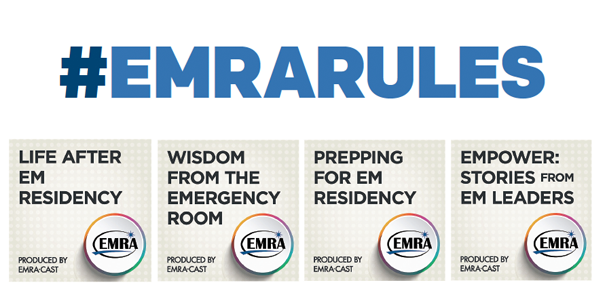
The mission of the Emergency Medicine Residents’ Association (EMRA), founded in 1974, is to be the voice of emergency physicians in training and the future of the specialty. I am happy to report that EMRA is as strong an organization today as it has ever been. The organization’s membership exceeds 14,000, including medical students, residents, fellows, and alumni, and it has a close relationship with ACEP that is strengthened by collaboration and mutual respect.
Explore This Issue
ACEP Now: Vol 35 – No 09 – September 2016Leadership, Collaboration, and Advocacy
 Development of future leaders, advocacy, and collaboration within the specialty of emergency medicine remain key initiatives for EMRA and are crucial components of the newly minted strategic plan, which EMRA’s Board approved earlier this year. While the list of ongoing initiatives and projects is long, I am excited to share a few highlights.
Development of future leaders, advocacy, and collaboration within the specialty of emergency medicine remain key initiatives for EMRA and are crucial components of the newly minted strategic plan, which EMRA’s Board approved earlier this year. While the list of ongoing initiatives and projects is long, I am excited to share a few highlights.
This year, the organization revamped its committees and divisions (C&Ds), as they are the drivers of many EMRA projects. Slack, an online, real-time interactive communication system, was used to make EMRA a nimbler and more productive organization and give leaders the ability to collaborate more effectively. In an effort to be more intentional with leadership development efforts, the organization will also be hosting leadership training for each C&D chair and vice chair this October, better preparing them to continue as leaders in the field post-residency.
EMRA is proud to be a diverse organization, and it continues to work to expand diversity within the field of emergency medicine. Earlier this year, ACEP, the Society for Academic Emergency Medicine (SAEM), the American Academy of Emergency Medicine (AAEM), the AAEM Resident and Student Association, the Council of Emergency Medicine Residency Directors (CORD), and EMRA all hosted a joint booth at the Student National Medical Association meeting, representing emergency medicine together as a specialty instead of each individual organization separately. EMRA also sent three members to the ACEP Diversity Summit in February to participate in the dialogue that occurred there.
Collaboration within emergency medicine is important to the organization. EMRA led the collaborative effort for the first EM Day of Service that encouraged residents, attendings, nurses, PAs, EMTs, and others working in emergency medicine to give back to local communities. At least 47 groups participated in the effort last September, impacting at least 463,000 community members.
Finally, EMRA supports advocacy initiatives that affect both members and the field of emergency medicine in general. The organization remains a strong supporter of the Emergency Medicine Action Fund (EMAF), the Emergency Medicine Foundation (EMF), and NEMPAC, contributing $25,000 annually to both EMF and EMAF and maintaining active engagement on the boards of all three organizations. EMRA leaders not only participated in the ACEP Leadership and Advocacy Conference (LAC) but coordinated and facilitated the Health Policy Primer session, which was one of the best-attended ever, with 144 residents present. While in Washington, D.C., for LAC, EMRA’s president, immediate past president, and medical student council chair advocated on behalf of medical students to the Association of American Medical Colleges (AAMC) at its headquarters to voice members’ concerns regarding a new residency application video pilot program, an effort that ultimately led to CORD and AAMC making changes to the program to ensure this was a true research pilot and that no medical students would be negatively affected by the trial. EMRA remains a member of the working group that will continue to oversee this project.
EMRA Publications and Educational Resources
Since EMRA is an organization made up of trainees, education is paramount. EMRA continues to update and expand its publications and educational resources for its members. This year, it launched EMRA•CAST, a series of podcasts with topics pertinent to EM residents and students. An example is EMpower, which highlights inspiring stories from accomplished EM leaders who have shaped and influenced the specialty. The inaugural EMpower series features Alison Haddock, MD, FACEP, Andy Bern, MD, FACEP, and Steven Stack, MD. Listen to these interviews at www.emra.org/resources/EMRA-CAST/.
Pages: 1 2 | Single Page





No Responses to “Emergency Medicine Residents’ Association Highlights Initiatives, Projects in Leadership, Collaboration, Advocacy”